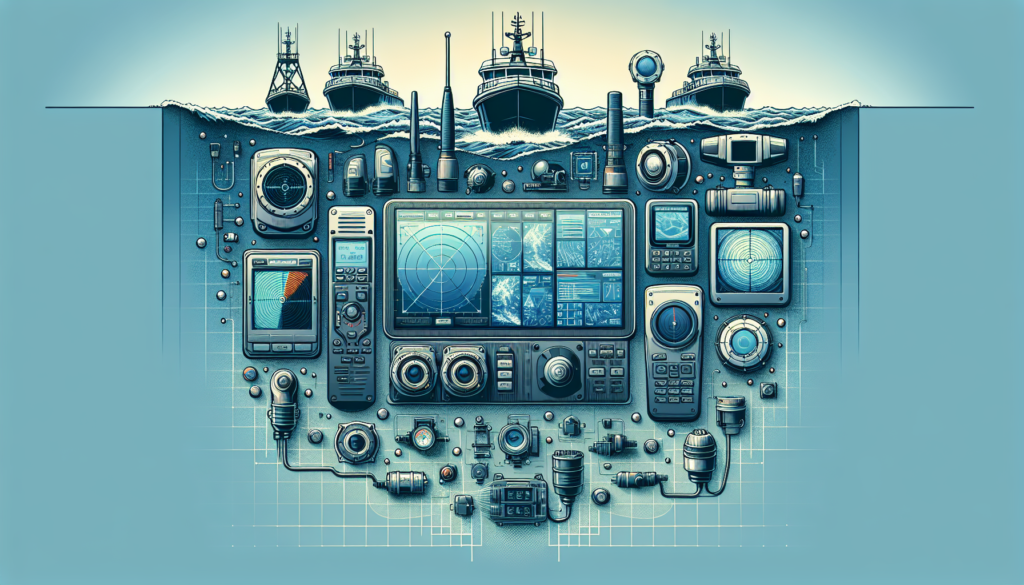Exploring the Depths of Marine Electronics
Imagine navigating the vast and unpredictable oceans without the aid of modern technology. The world of marine electronics has revolutionized the way we interact with the sea, providing sailors, fishermen, researchers, and enthusiasts with cutting-edge tools to enhance safety, efficiency, and overall marine experiences. From GPS systems and sonar technology to radar and communication devices, marine electronics encompass a wide array of devices designed specifically for use in aquatic environments.
But what exactly are marine electronics, and how do they work? In this comprehensive guide, we will dive deep into the world of marine electronics, exploring their history, applications, and future trends. Join us on an exciting journey as we unravel the mysteries of the sea with the help of advanced technology.
The Evolution of Marine Electronics
Marine electronics have come a long way since their inception. In the early days of seafaring, sailors relied on basic tools like compasses and sextants to navigate the open waters. However, with the advent of modern technology, the maritime industry has witnessed a significant transformation in the way ships are operated and managed.
One of the most revolutionary advancements in marine electronics was the introduction of GPS (Global Positioning System) technology. GPS systems use a network of satellites to pinpoint a vessel’s exact location, allowing sailors to navigate with unprecedented accuracy. This technology has not only improved safety at sea but has also enabled sailors to reach their destinations more efficiently.
Another key development in marine electronics is the integration of sonar technology. Sonar devices emit sound waves into the water and measure the time it takes for the waves to bounce back, providing valuable information about the depth of the ocean floor and the presence of underwater objects. This technology is essential for fishermen looking to locate schools of fish or avoid potential hazards.
Applications of Marine Electronics
The applications of marine electronics are vast and varied, spanning across different sectors of the maritime industry. From commercial shipping to recreational boating, marine electronics play a crucial role in ensuring the safety and efficiency of maritime operations.
Commercial Shipping
Commercial shipping relies heavily on marine electronics to navigate crowded waterways, avoid collisions, and comply with international regulations. Radar systems, AIS (Automatic Identification System), and ECDIS (Electronic Chart Display and Information System) are just a few of the essential tools used by commercial vessels to ensure safe and efficient navigation.
These technologies not only enhance the situational awareness of ship crews but also enable them to communicate with other vessels in real-time, reducing the risk of accidents and improving overall maritime safety.
Fishing Industry
The fishing industry has also benefited greatly from the advancements in marine electronics. Fishermen can now use sophisticated sonar devices to locate fish more accurately, increasing their catch rates and reducing fuel consumption. Additionally, tools like fish finders and GPS chartplotters have revolutionized the way fishermen search for and track fish in the open ocean.
Research and Exploration
Marine researchers and explorers rely on cutting-edge marine electronics to study the ocean’s depths and gather valuable data about marine life and ecosystems. ROVs (Remotely Operated Vehicles), underwater cameras, and acoustic sensors are just a few examples of the advanced technologies used in marine research.
Future Trends in Marine Electronics
The future of marine electronics looks promising, with continued advancements in technology driving innovation and growth in the maritime industry. From autonomous vessels to AI-powered navigation systems, the possibilities are endless when it comes to the future of marine electronics.
One of the most exciting developments in marine electronics is the rise of autonomous vessels. These unmanned ships are equipped with a wide range of sensors and communication devices that allow them to navigate the seas without human intervention. By leveraging AI and machine learning algorithms, autonomous vessels can make real-time decisions and adapt to changing environmental conditions, revolutionizing the way we think about maritime operations.
Expert Opinions
According to marine electronics expert John Smith, “The advancements in marine electronics have transformed the way we interact with the sea. From improving safety and efficiency to enabling new discoveries, these technologies have had a profound impact on the maritime industry.”
Common Misconceptions
One common misconception about marine electronics is that they are only relevant to large commercial vessels. In reality, marine electronics are used by a wide range of maritime operators, including recreational boaters, fishermen, and marine researchers.
Conclusion
To wrap things up, marine electronics have revolutionized the maritime industry, providing sailors, fishermen, researchers, and enthusiasts with the tools they need to navigate the seas safely and efficiently. From GPS systems and sonar technology to autonomous vessels and AI-powered navigation systems, the possibilities are endless when it comes to the future of marine electronics. As technology continues to evolve, we can expect even more exciting innovations in the world of marine electronics, shaping the future of maritime operations for years to come.



